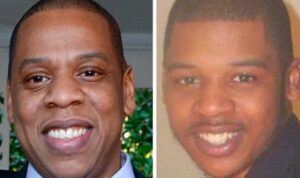After decades of searching and heartbreak, Han Tae-soon is suing the South Korean government for its role in the illegal adoption scheme that led to her daughter, Kyung-ha, being taken and raised in America. This case reflects broader issues regarding the country's notorious adoption practices and has reignited discussions around accountability and reform within the system.
Reunion After Decades: A Mother's Fight for Justice Over Forced Adoption in South Korea

Reunion After Decades: A Mother's Fight for Justice Over Forced Adoption in South Korea
Han Tae-soon reunites with her daughter after 44 years, as she seeks justice against South Korea's government for alleged complicity in illegal adoptions.
Han Tae-soon, a 71-year-old South Korean woman, has spent 44 years searching for her daughter, Kyung-ha, who was abducted from their home in Seoul when she was just six years old. Their reunion in 2019 led to the revelation that Kyung-ha had been raised in the U.S. under the name Laurie Bender after being taken to an orphanage and illegally adopted. Determined to hold the South Korean government accountable for its failure to prevent such abductions, Ms. Han has filed a lawsuit, becoming the first biological parent of an overseas adoptee to seek damages from the state.
South Korea's controversial overseas adoption program has been under scrutiny for decades, with many alleging it involved fraud, kidnapping, and human trafficking. A recent inquiry corroborated these claims, identifying systematic human rights violations tied to the mass exportation of children for adoption, emphasizing the government's lack of oversight as a crucial factor in the abuse. Experts anticipate that this landmark case may pave the way for others similarly affected to initiate legal actions against the state.
The government, while expressing sympathy for families separated from their loved ones, has yet to offer formal apologies for past practices. Ms. Han details her relentless search efforts, which included scouring police stations and orphanages, showcasing the emotional toll this ordeal has taken on her.
The adoption program, which began in the aftermath of the Korean War, has resulted in an estimated 170,000 to 200,000 children being sent abroad. While touted as humanitarian, critics argue that it became akin to a "trade in children," where private agencies exploited the system with minimal state intervention. The tragic stories of abduction and falsified identities underline the urgent need for accountability and reform.
Recent government reforms aiming to rectify past injustices have not yet addressed the individual trauma experienced by adoptees like Kyung-ha and birth parents like Ms. Han. Despite having reunited, the language barrier and distance make true connection challenging for mother and daughter. Ms. Han expresses profound sadness at the irreparable loss and insists that no monetary compensation can ever replace what has been taken from her. She continues to fight not just for her own peace, but also for the recognition of countless others who suffered similar fates.





















